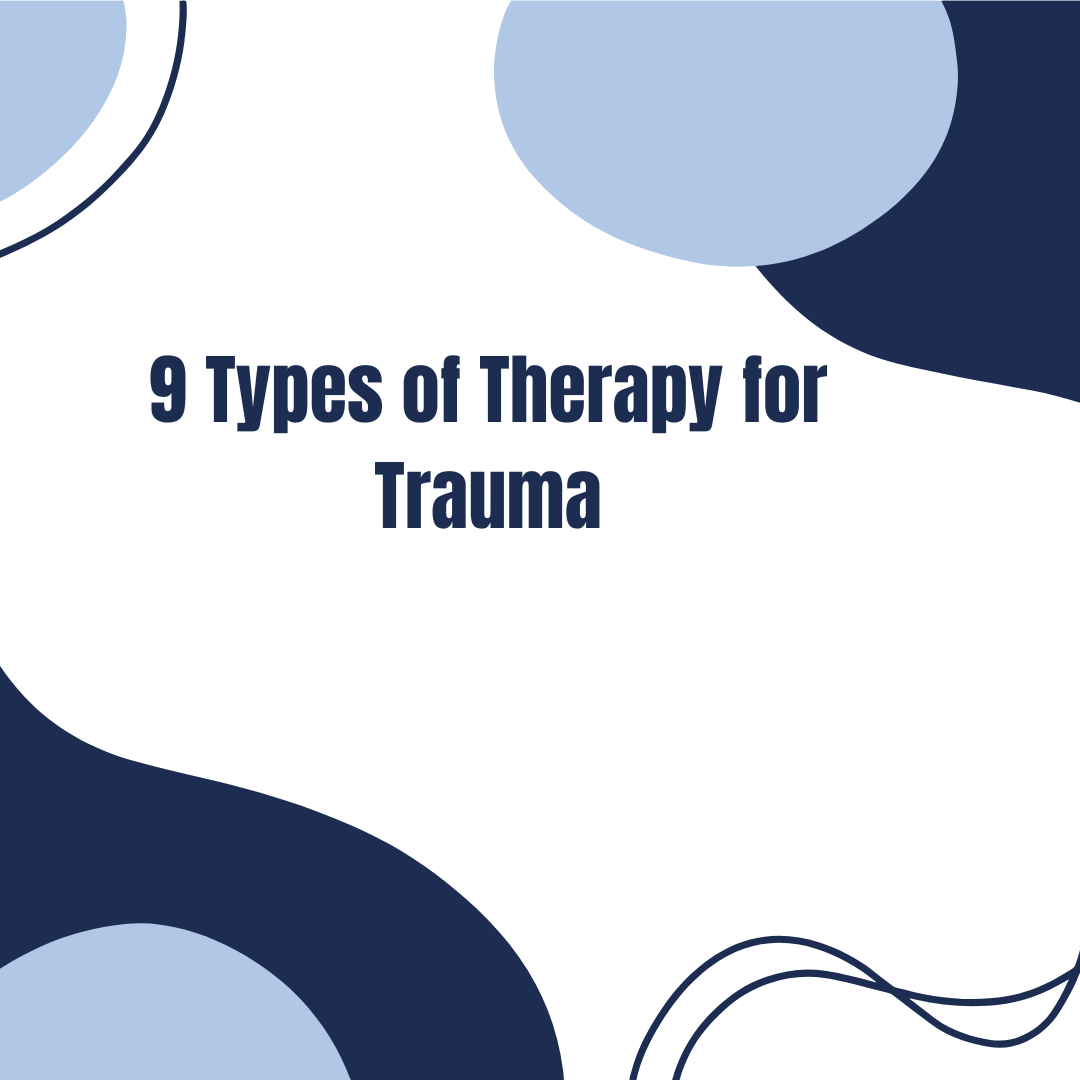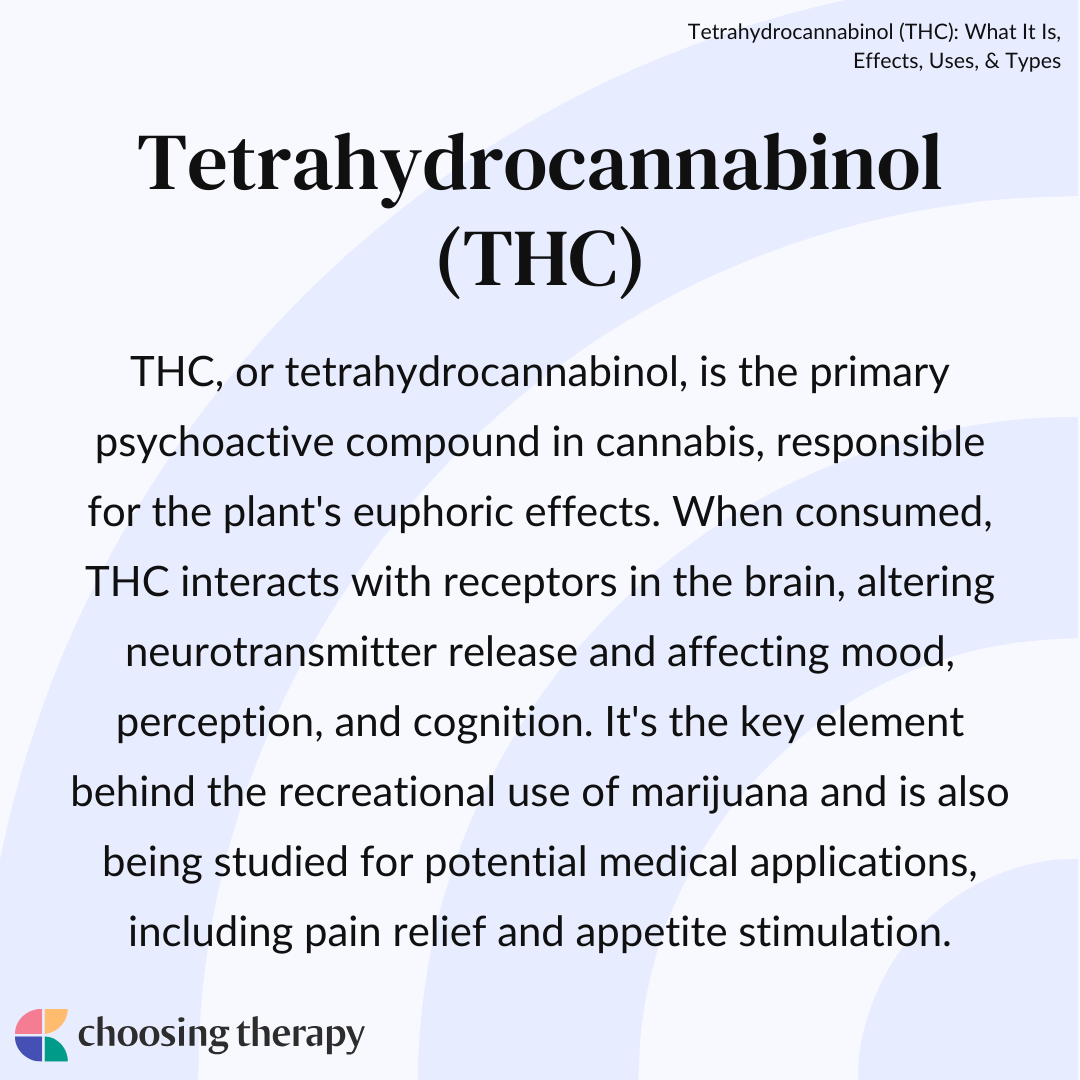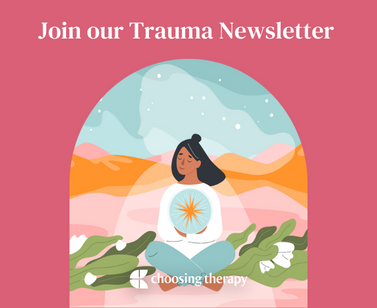THC, or tetrahydrocannabinol, is the primary psychoactive compound in cannabis, responsible for the plant’s euphoric effects. When consumed, THC interacts with receptors in the brain, altering neurotransmitter release and affecting mood, perception, and cognition. It’s the key element behind the recreational use of marijuana and is also being studied for potential medical applications, including pain relief and appetite stimulation.
Ketamine Program For Depression, Anxiety, and Trauma Nue.life offers an at-home, evidence-based ketamine program supported by hundreds of clinical studies. Our clients feel rapid & lasting relief within hours after the first treatment. Learn More
What Is THC?
THC is a complex organic compound found in the cannabis plant. This psychoactive cannabinoid mimics the action of endocannabinoids in the body, particularly binding to receptors in the brain and central nervous system. Its interaction with the endocannabinoid system leads to altered neurotransmitter release, resulting in the characteristic feelings of relaxation, euphoria, and altered sensory perception associated with cannabis use.1 Beyond recreational use, ongoing research explores THC’s potential therapeutic benefits, ranging from pain management to its impact on neurodegenerative disorders.
What Is High THC?
“High THC” refers to cannabis strains or products with elevated levels of tetrahydrocannabinol, the psychoactive compound responsible for the plant’s euphoric effects. Strains boasting high THC content often induce stronger intoxicating sensations, impacting mood, perception, and cognitive function more intensely. Users seeking potent psychoactive experiences or enhanced medicinal effects, such as pain relief or appetite stimulation, may opt for cannabis products labeled as “high THC.” It’s crucial for consumers to be aware of their tolerance levels and preferences when selecting such products.
CBD Vs. THC
THC (tetrahydrocannabinol) and CBD (cannabidiol) are two of the most well-known cannabinoids found in the cannabis plant, each interacting with the body’s endocannabinoid system but yielding distinct effects. THC is the primary psychoactive component in cannabis, responsible for the characteristic “high” associated with marijuana use. It binds to CB1 receptors in the brain, altering neurotransmitter release and impacting mood, perception, and cognition. On the other hand, CBD does not produce a psychoactive effect. It interacts with both CB1 and CB2 receptors, but its influence on these receptors is more subtle, modulating the endocannabinoid system without inducing intoxication.
The differences between THC and CBD extend beyond their psychoactive properties. THC is commonly associated with the recreational use of cannabis, as it provides the euphoric experience sought by recreational users. In contrast, CBD has gained attention for its potential therapeutic benefits, including anti-inflammatory, anti-anxiety, and anticonvulsant properties. CBD oil for anxiety may offer relief from anxiety symptoms. Both cannabinoids, however, share anti-inflammatory effects and are being studied for their potential in alleviating various medical conditions, such as chronic pain, epilepsy, and anxiety disorders.2 The unique interplay between THC and CBD allows for a diverse range of cannabis products catering to different preferences and medical needs.
How Long Does THC Stay In Your System?
The duration that THC stays in your system depends on various factors, including frequency of use, metabolism, and body composition. Typically, THC metabolites can be detected in urine for up to 30 days after occasional use, while chronic users may test positive for several weeks or even months. In blood, THC is generally detectable for a shorter duration, usually up to a week. Hair follicle tests can reveal THC use for an extended period, potentially up to 90 days.1 However, these are general estimates, and individual variations can influence the detection window.
Here’s how long THC can be detected in your system using various testing methods:
- Blood test: THC can be detected in the bloodstream for a relatively short period, typically up to a week. This method is effective for detecting recent cannabis use and is commonly used in roadside or workplace testing.
- Urine test: THC metabolites are often detectable in urine for up to 30 days after occasional use, and even longer for chronic users. This method is widely employed due to its convenience and relatively low cost.
- Hair follicle test: THC can be traced in hair follicles for an extended period, potentially up to 90 days. This method provides a long-term history of cannabis use but is less commonly used due to its higher cost.
- Saliva test: THC can be detected in saliva for a shorter duration, usually up to 24-72 hours after use. This method is often used for roadside testing due to its quick and non-invasive nature.
- Sweat test: THC can be found in sweat, but this method is less common and not as reliable for detecting recent drug use. It is not widely used due to challenges in sample collection and interpretation.
Experience the medically proven power of psychedelics from your own space Nue.life offers at-home oral ketamine therapy for you to heal from mental health conditions with a home turf advantage. Over 2/3 of all Nue Life clients report more than 50% reduction in depression, anxiety, and PTSD symptoms and it’s 60 to 80% cheaper than in-clinic therapy. Learn More
Benefits of THC
THC, or tetrahydrocannabinol, is the primary psychoactive compound in cannabis, and it has been associated with various potential therapeutic benefits. Firstly, THC is recognized for its analgesic properties, offering relief from pain and discomfort. Additionally, it may alleviate nausea and stimulate appetite, making it beneficial for individuals undergoing chemotherapy or dealing with appetite loss due to certain medical conditions. Some research suggests that THC may also have anti-inflammatory and neuroprotective effects, showing promise in conditions like multiple sclerosis. However, it’s essential to note that individual responses vary, and further research is needed to fully understand the scope of THC’s medicinal benefits.
Alleviates Pain
THC alleviates pain by interacting with the endocannabinoid system (ECS), modulating its receptors throughout the body. The ECS plays a crucial role in regulating various physiological processes, including pain sensation. THC binds to CB1 receptors in the central nervous system and peripheral tissues, influencing the transmission of pain signals. This interaction can dampen the perception of pain and modify its emotional impact. Additionally, THC’s anti-inflammatory properties contribute to pain relief by reducing inflammation, further highlighting its potential as an analgesic agent in certain medical contexts.
Reduces Nausea From Chemotherapy
THC’s ability to reduce nausea from chemotherapy is attributed to its interaction with the endocannabinoid system. THC activates CB1 receptors in the brain, which are part of the ECS involved in regulating nausea and vomiting. By modulating these receptors, THC helps alleviate the queasiness and vomiting often associated with chemotherapy. This antiemetic effect makes THC-containing medications, like dronabinol, valuable in managing chemotherapy-induced nausea and enhancing the overall quality of life for cancer patients undergoing treatment.
Reduces Muscle Spasms in Paraplegics
THC’s potential in reducing spasms in paraplegics is linked to its interaction with the endocannabinoid system (ECS). The ECS plays a role in motor control, and THC binds to CB1 receptors in the central nervous system. This interaction may help modulate the abnormal signaling that leads to spasms and muscle stiffness. Studies suggest that THC’s muscle relaxant properties could provide relief for paraplegics experiencing spasticity, enhancing their mobility and overall comfort. However, individual responses may vary, and more research is needed to establish precise therapeutic guidelines.
Improves Sleep
THC may improve sleep by interacting with the endocannabinoid system (ECS) and influencing neurotransmitters involved in the sleep-wake cycle. THC binds to CB1 receptors in the brain, reducing the release of certain neurotransmitters and promoting relaxation. This calming effect can make it easier for individuals to fall asleep. Additionally, THC has been reported to increase the duration of deep sleep stages. While it may aid sleep for some, individual responses vary, and long-term use may impact sleep patterns differently. Further research is necessary to understand the full spectrum of THC’s effects on sleep.
Anxiety and Stress Relief
THC has shown the potential to provide anxiety and stress relief by interacting with the endocannabinoid system. It binds to CB1 receptors in the brain, influencing the release of neurotransmitters like serotonin and GABA, which play key roles in mood regulation. This modulation can produce a calming effect, helping individuals manage symptoms of anxiety and stress. However, it’s important to note that while some users report positive effects, excessive THC consumption may exacerbate anxiety in certain individuals, highlighting the need for personalized and controlled usage. Research in this area is ongoing to understand better THC’s impact on mental health.3
Negative Side Effects Of THC
Excessive THC consumption can lead to various negative side effects. Short-term cognitive impairment, memory issues, and impaired coordination are common, affecting activities such as driving. Psychiatric effects include heightened anxiety, paranoia, and hallucinations, particularly in susceptible individuals. Long-term use may result in cannabis use disorder, impacting daily life. Respiratory problems may arise from smoking, and while less common, acute cannabis intoxication can lead to severe anxiety attacks or psychosis. Additionally, THC can impair motivation and contribute to dependency. It’s crucial for users to be aware of these potential adverse effects and exercise responsible and informed cannabis use.
Moreover, THC can have cardiovascular effects, such as increased heart rate and blood pressure, which may pose risks, particularly for individuals with pre-existing heart conditions. Chronic use in adolescence may impact cognitive development, affecting attention, memory, and learning abilities. Dependency and withdrawal symptoms, though typically mild compared to some substances, can include irritability, insomnia, and loss of appetite. While many users experience positive effects, understanding and mitigating potential negative consequences through moderation and informed use is essential for a balanced approach to cannabis consumption.
THC & Mental Health
Evidence suggests that THC may offer therapeutic benefits for certain mental health issues, including anxiety and post-traumatic stress disorder (PTSD). THC interacts with the endocannabinoid system, influencing neurotransmitter release and promoting a calming effect. For individuals with anxiety disorders, the anxiolytic properties of THC may provide relief, helping to manage symptoms. In the case of PTSD, THC has shown promise in mitigating anxiety and reducing the impact of traumatic memories by affecting memory consolidation. However, it’s crucial to note that individual responses vary, and further research is needed to establish precise guidelines for the therapeutic use of THC in mental health contexts. Additionally, caution is advised as excessive THC consumption can exacerbate anxiety in some individuals, highlighting the importance of personalized and controlled use.
Furthermore, THC’s potential to alleviate symptoms of anxiety and PTSD is linked to its impact on fear extinction and emotional processing. Studies suggest that THC may facilitate the extinction of aversive memories, which is particularly relevant in the context of PTSD treatment. While these findings offer promise, it’s important to consider the complex interplay of individual factors and dosage levels. Striking the right balance and addressing potential risks, such as increased anxiety in some users, is crucial for harnessing the therapeutic benefits of THC in managing mental health conditions. As research in this area continues, a nuanced understanding of the relationship between THC and mental health is essential for optimizing its therapeutic potential.
Ketamine Program For Depression, Anxiety, and Trauma Nue.life offers an at-home, evidence-based ketamine program supported by hundreds of clinical studies. Our clients feel rapid & lasting relief within hours after the first treatment. Learn More
Forms Of THC Consumption
THC, or tetrahydrocannabinol, is the psychoactive compound found in cannabis. It is available in various forms to accommodate diverse user preferences. Traditional marijuana flower contains THC, and it can be smoked or vaporized. Alternatively, THC-infused products include edibles, concentrates, and oils, providing discrete and controlled consumption options. Each form offers a unique onset time and duration of effects, catering to individuals seeking tailored experiences with THC. Understanding these diverse options allows users to make informed choices based on their desired outcomes and consumption preferences.
Inhalation
Inhalation is a common method of consuming THC, typically through smoking or vaporization. Smoking involves combusting the cannabis flower, releasing THC-rich smoke that is inhaled into the lungs for rapid absorption into the bloodstream. Vaporization, on the other hand, heats the cannabis material to a temperature where active compounds, including THC, become an inhalable vapor without combustion, potentially reducing harmful byproducts associated with smoking. Inhalation provides a quick onset of effects, making it a preferred choice for individuals seeking immediate relief or a rapid psychoactive experience.
Oral Ingestion
Oral ingestion of THC involves consuming cannabis-infused products, such as edibles or tinctures, which are metabolized in the digestive system. Edibles, like gummies or baked goods, contain THC that is absorbed through the gastrointestinal tract, resulting in a slower onset of effects compared to inhalation but with a prolonged duration. Tinctures, liquid extracts placed under the tongue, offer a quicker onset as they are partially absorbed sublingually before being further metabolized. Oral ingestion provides a discreet and convenient way to consume THC, but users should be mindful of dosage due to delayed effects and potential variability.
Topical Application
Topical application of THC involves the use of cannabis-infused balms, lotions, or patches applied directly to the skin. These products are designed to provide localized relief without inducing psychoactive effects. THC, along with other cannabinoids, interacts with cannabinoid receptors in the skin, muscles, and joints, offering potential benefits for pain management and inflammation. Unlike methods involving systemic absorption, the topical application allows users to target specific areas, making it a popular choice for those seeking therapeutic effects without the characteristic high associated with other forms of THC consumption.
Sublingual Administration
Sublingual administration of THC involves placing cannabis tinctures or oil-based extracts under the tongue, allowing for rapid absorption into the bloodstream through the sublingual mucosa. This method offers a faster onset of effects compared to oral ingestion, as some THC is absorbed directly without passing through the digestive system. Sublingual administration provides a balance between the quick onset associated with inhalation and the sustained duration typical of oral ingestion, making it a preferred choice for individuals seeking both efficiency and control over their THC experience.
Is THC Legal?
The legality of THC varies globally and is subject to frequent changes. In some regions and countries, THC is legal for medical and recreational use, allowing regulated production, sale, and consumption. Other areas strictly prohibit THC due to concerns about its psychoactive effects and potential public health risks. In certain places, THC legality falls into a gray area, with varying degrees of decriminalization or limited medical use. It’s crucial for individuals to be aware of and adhere to local laws regarding THC, as legal statuses differ widely, influencing the availability and consequences of THC-related activities.
Is THC Addictive?
THC, the psychoactive compound in cannabis, can be habit-forming for some individuals, leading to psychological dependence. While the risk of physical addiction is relatively low compared to substances like opioids, frequent and heavy use of THC can result in tolerance, withdrawal symptoms, and difficulty stopping use. Not everyone who uses THC becomes addicted, and factors such as genetics, mental health, and environmental influences play a role. It’s essential for users to be mindful of their consumption patterns and seek support if they experience signs of dependence or negative effects on daily functioning.
When to Seek Professional Help for Anxiety
When someone is dealing with substance use and it interferes with daily life, relationships, or mental well-being, seeking professional support is crucial. Warning signs include failed attempts to cut down, neglect of responsibilities, or social and legal problems. An online therapist directory or online therapy platform can be beneficial for finding therapists specializing in substance use, offering accessibility and convenience. If substance use involves mental health concerns, a psychiatrist may be necessary. Certain online psychiatrist options can be effective for medication management and consultations, providing flexibility for individuals seeking help for substance use-related issues. Seeking professional assistance is advisable when substance use poses challenges that impact overall health and functioning.
In My Experience
To help our readers take the next step in their mental health journey, Choosing Therapy has partnered with leaders in mental health and wellness. Choosing Therapy is compensated for marketing by the companies included below. Online Therapy BetterHelp – Get support and guidance from a licensed therapist. BetterHelp has over 25,000 therapists who provide convenient and affordable online therapy. Take A Free Online Assessment and get matched with the right therapist for you. Free Assessment Online PTSD treatment Talkiatry offers personalized care from psychiatrists who listen and take insurance. Get matched with a specialist in just 15 minutes. Take our assessment. Treatment For Trauma & OCD Half of people diagnosed with OCD have experienced a traumatic life event. The chronic exposure to stressful situations, such as ongoing bullying, or an abusive relationship can lead to the development of OCD symptoms. NOCD therapists specialize in treating both trauma and OCD and are in-network with many insurance plans. Visit NOCD Trauma & Abuse Newsletter A free newsletter for those impacted by trauma or abuse. Get encouragement, helpful tips, and the latest information. Sign Up Choosing Therapy Directory You can search for therapists by specialty, experience, insurance, or price, and location. Find a therapist today.Additional Resources
For Further Reading
How Does ERP Help With Intrusive Thoughts? Obsessive compulsive disorder (OCD) is a psychiatric condition marked by the presence of obsessive thoughts, images, doubts, or urges, followed by compulsive behaviors or acts aimed at easing the distress caused by the obsession. While the content of the obsessions can take many forms, they are always repetitive, persistent, involuntary, and intrusive, and they often result in a great deal of anxiety for the person experiencing them. 9 Types of Therapy for Trauma Experiencing trauma can result in distressing and debilitating symptoms, but remind yourself that there is hope for healing. If you or a loved one is suffering from the aftereffects of trauma, consider seeking therapy. Trauma therapy can help you reclaim your life and a positive sense of self. 

Tetrahydrocannabinol (THC) Infographics







